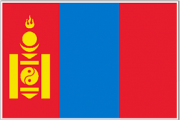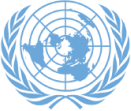(New York, September 27, 2019)
“Issues of Importance to the Group of G77 and its role in promoting
a development agenda in light of its fifty-fifth anniversary commemoration”
At the outset, on behalf of the Government of Mongolia, I would like to extend our heartfelt greetings and congratulations to you, Mr. Chair, and through you – to all fellow members of our Group on the occasion of the commemoration of its 55th Anniversary. May I also commend the State of Palestine for its tireless efforts exerted in leading the biggest and most diverse group at the United Nations.
I would also like to warmly welcome Azerbaijan as the newest member of our group.
Since its inception, the Group has been steadfast in promoting the interests of developing countries and made substantial contribution to the development of important policy documents, including the Declaration on the Establishment of a New International Economic Order (1974), the Declaration on the Right to Development (1986), the United Nations Millennium Declaration in 2000, the 2030 Agenda for Sustainable Development Agenda, Addis Ababa Action Plan and the Paris Agreement.
Since joining the G-77 in 1989, Mongolia has endeavoured to actively participate in its activities and contribute to the advancement of our common agenda through initiating and promoting issues related to education and literacy, improving the situation of women and girls in rural areas, role of co-operatives in social development, right to adequate housing, right to a healthy environment, raising awareness of the special needs and challenges faced by the landlocked developing countries.
Four years of SDGs’ implementation reveal that empowering people, ensuring inclusiveness and developing innovative methods of financing are imperative for their advancement. Mongolia shares the concern of the Group that the current pace and scope of implementation is slow and not enough to achieve the sustainable development. Hence, Mongolia strongly supports the pledge to make the coming decade one of action and delivery through supporting the most vulnerable and reaching the furthest behind first, as envisaged in the Political Declaration of the recent SDGs Summit.
Mongolia is keen to engage in different platforms to promote regional and international dialogues on SDGs. In this regard, I am pleased to inform you that Mongolia hosted the Second Regional Seminar on Achieving the Sustainable Development Goals for the Parliaments in the Asia-Pacific Region on 27-28 May 2019. The regional seminar was central to define the opportunities and challenges facing parliaments in the region in enhancing their role in SDGs implementation.
We believe that the Belt and Road Initiative compliments our efforts to achieve sustainable development agenda as its five pillars are linked to the SDGs. For that reason we are aligning our own “Development Road” program with the Belt and Road initiative and pursuing such initiatives as the Travel Facilitation Initiative for BRI countries.
The implementation of the Vienna Program of Action constitutes an integral part of the SDGs. We expect that its 5-year review in December this year will come up with an ambitious roadmap for accelerating its implementation.
Mongolia is proud to contribute to the South-South Cooperation through promoting interests of LLDCs and initiating the establishment of a think tank back in 2006. Today the Ulaanbaatar-based International Think Tank (ITT) for Landlocked Developing Countries is actively engaging in global dialogues on related issues through providing evidence-based advisory services and organizing regional and international workshops.
In addition, the ITT successfully completed the research project on economic diversification of 4 land-locked developing countries, i.e Mongolia, Nepal, Bhutan and Paraguay, co-funded by the Perez-Guerrero Trust Fund. A study was instrumental in identifying opportunities for export and market diversification for these 4 countries. In addition, the ITT is planning to organize a workshop on “Best practices in corridor development and management for the benefit of LLDCs and transit countries” together with the United Nations (UN OHRLLC) on 29-30 October 2019 in Ulaanbaatar.
Taking this opportunity I would like to invite the fellow members of the G- 77 and China to support the activities of this Center of Excellence. On its part, the Government of Mongolia has been contributing USD 100,000 annually to the ITT over the last several years.
In concluding may I reiterate our continued support to the work of G77 and China.


